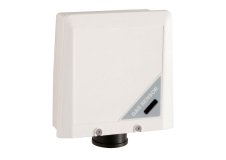Hydrogen Cyanide Detection
Hydrogen cyanide is a highly volatile, colourless, and extremely poisonous compound with the chemical formula HCN. It boils and becomes gaseous just above room temperature, at 25.6 °C. HCN is produced commercially by the reaction of ammonia, methane, and air over a platinum catalyst or from the reaction of ammonia and methane.
Fruits that have a pit, such as cherries, apricots, apples, and bitter almonds, all contain hydrogen cyanide. Many of these pits contain small amounts of cyanohydrins, which slowly release hydrogen cyanide. Among animals, cyanogenesis is a defensive strategy that has seemed restricted to a few mandibulate arthropods (certain insects, millipedes, and centipedes), which evolved ways to store HCN in the form of stable and less volatile molecules.
Applications and Hazards of Hydrogen Cyanide
Hydrogen cyanide is an important industrial chemical and over a million tonnes are produced globally each year. It is used primarily in the manufacture of other chemicals and plastics and also as a fumigant to kill pests. Cyanide compounds are used for metal process including electroplating. Sodium cyanide is produced from HCN and is used to extract gold and silver from ores.
Exposure to low concentrations or small amounts may cause headaches, dizziness and nausea. Symptoms usually improve soon after removal from an exposure. At higher concentrations, a rapid loss of consciousness, coma or death may occur. Although hydrogen cyanide gas is extremely flammable, it is most often detected under its toxic form (expressed in ppm) with an HCN gas detector.
HCN Detection Options
Noventis offers a range of gas detectors for detection of hydrogen cyanide. It’s important to consider that individual applications are unique in their respective designs, requirements and processes undertaken. An important consideration is a risk assessment of your application. As experienced gas detection equipment manufacturer, we are often able to help in this process and select the right gas detector should this be an option to reduce your risk associated to Hydrogen Cyanide.
Gas Specifications
- Gas Name: Hydrogen Cyanide
- Formula: HCN
- CAS No.: 74-90-8
- TWA: 3.0 ppm
- LEL: 5.6 %VOL
- Density relative to air: 0.96



